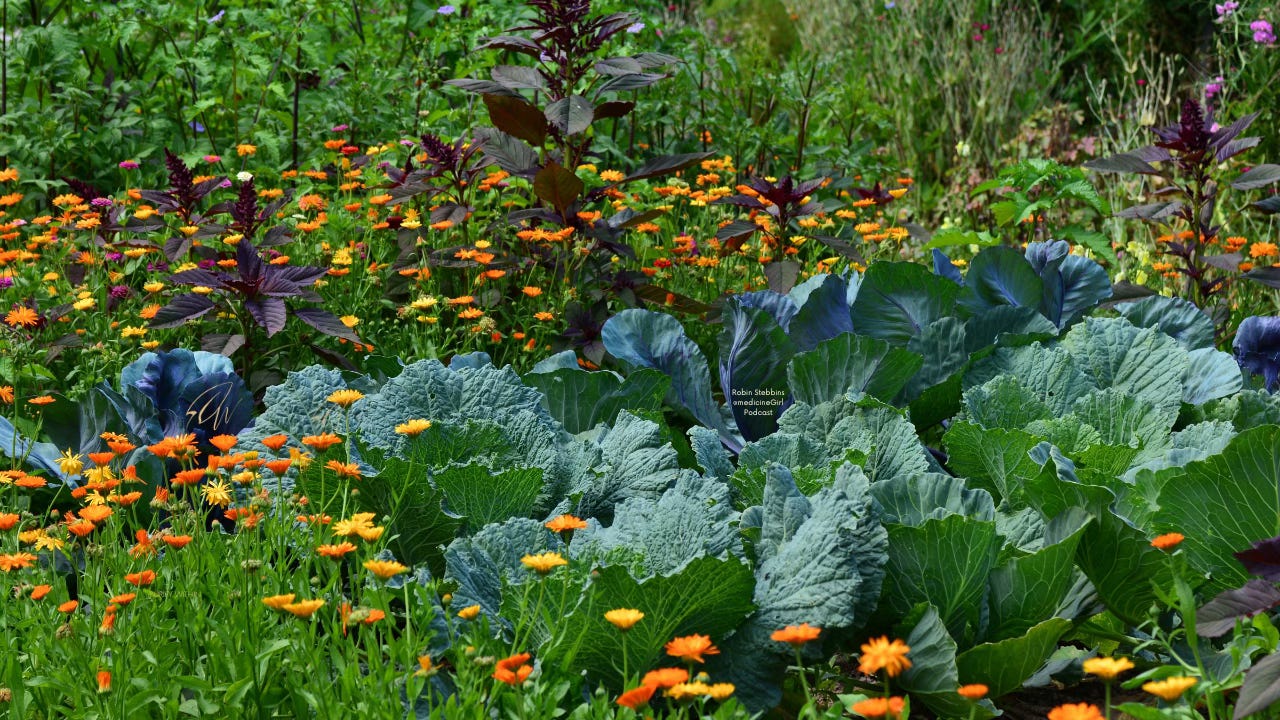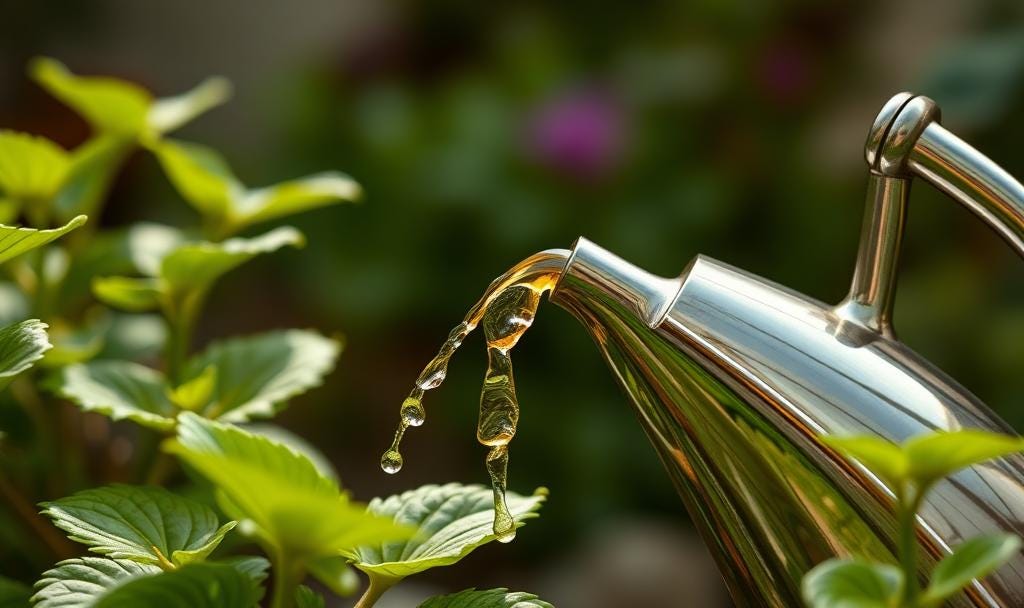Urine's Last Stand
I searched high and low to find the benefits of urine. It wasn't easy, but I have included an exhaustive list of the uses for urine.
Part 4 of 4 Since there has been so much controversy around the subject, I had to do a little digging to find out why the powers that be would get their shills to promote urine therapy. They aren’t profiting from the practice, why is it so en vogue? Which, by the way, is a huge red flag when everyone you know on the screens is touting the brand new miracle of miracles. I get so tired of explaining the same playbook, so I’ll take a slightly different angle and then lay the subject to rest.
The Market Analysis of Dialysis
As mentioned, the medical industrial complex does not put anything in a pile, vitamins or supplements, that doesn’t create increased illness and revenue downstream. What revenue does drinking your pee create? Way more than you think. The pharmaceuticals you are consuming, also known as vitamins, supplements, prescription, and OTC drugs, get a second pass at harming and destroying your body, now potentiated with the second pass. Over time, these chemicals will damage the liver, which happens to be very resilient and can withstand years and years of this. But the kidneys are more sensitive and prone to irreparable damage. And as we learned in our first few articles, dialysis is a curtain call for most individuals sentenced to the torturous procedure for the remainder of their life.
The Medicare Cartel changed its rules on dialysis in 2024, which caused most of the small independently owned dialysis centers to close, imagine that. Small-chain and independently owned facilities have retained a declining share of the dialysis market since Medicare payment reform, largely associated with acquisitions, rather than closures. These megacorp dialysis centers are now providing dialysis for more than 85% of patients with kidney failure in the United States. Like anything else that becomes monopolized and corporate run, the psychopathic greed to increase revenue never ends. These corporate run centers like DaVita and Fresenius popping up like 7-11’s. I can see a few fold would have kidney failure, but enough to have megacorporations? Something fishy is going on.
The global dialysis market is skyrocketing, set to go from USD 95.22 billion in 2023 to almost doubling with a staggering USD 181.16 billion by 2032. What’s driving this leap? It’s the rising tide of chronic kidney disease, with more people than ever opting for dialysis. North America is in the lead, with 60% of the global market share. While COVID-19 temporarily hit the brakes on dialysis for reasons that should be obvious, the market's bouncing back with gusto. As governments push for more affordable home treatment options, the future looks unlimited for this market. I hope it doesn’t surprise you that our government is taking a cut. Does anyone else find it strange that no one is projecting a drop from curing kidney disease or decreasing renal failure? They are banking on continual annual increases with more and more people damaging their kidneys.
You can’t have the population using just one method to get them on a kidney machine; you have to use every trick in the book. The most obvious ways to damage your kidneys would be through pharmaceutical drugs like Vitamin D3, statin drugs, and anything that chelates minerals from your bones and moves it through your body. To further damage the nephrons, drinking urine will not only damage it with the waste contents of your filtered blood but also with the second pass of vitamins and drugs the body worked so hard to remove the first time. I’m sure you remember vitamins used to be called “expensive urine,” like when your urine turns orange if you take vitamin B12 and your body immediately filters it out as it wants it gone. So if your favorite idol on the screen is guzzling their urine, touting “The Water of Life” as their bible, you are meant to see it. Doctor’s even used urine to diagnose diseases based on the color, smell and sometimes even taste. Again, the body is filtering out the toxic waste removing it in a liquid waste for you to dispose of.
As I have painstakingly pointed out in Parts 1-3, drinking urine damages the kidneys. Drinking urine with drugs, vitamins, and supplements really damages the kidneys. As promised, there is significant benefit in the natural world in using urine. As always, we look to Mother Nature as the perfect blueprint. Animals don’t save and consume their own urine, but they do pee in areas where they graze or forage for food. This, in turn, allows the plants to grow with the animals' customized nutrition. According to the internet, this is not accurate, but I did some more digging and found a little more happening than meets the eye.
Gardening and Plant Communication Growing with our Specific Customized Needs
Turns out, urine is a rich source of essential nutrients such as nitrogen, phosphorus, and potassium, which are critical for plant growth. As we know by now, we are not designed to ingest the minerals directly like magnesium, zinc, or calcium; we are meant to eat the plants that have absorbed them and provide bioavailable nutrients. Nature is perfect in its synergy. Using urine as fertilizer, however, enhances soil fertility, resulting in healthier and more vigorous plants. I will be following up with this stack on the psyop that claims soils are deficient, so you have to supplement with vitamins and minerals. It is not true unless you buy grocery store vegetables. To use urine in your garden, a common method involves diluting it at a 1:10 ratio with water. Fresh spring water would be ideal but not very likely. I know some use an RV filter on the end of their hose, but I doubt it filters much. Your plants likely filter out most of the garbage for you, but it is difficult to grow healthy plants with store-bought soil and tap water.
When the diluted urine is introduced to the garden, this nutrient-rich solution significantly boosts the soil's health, which in turn boosts the nutrient density of plants and increases yields. Keep in mind that your specific urine is being used on the plants, and I have found evidence that they will then grow to meet your specific nutritional needs. This practice supports the growth of fruits and vegetables and allows gardeners to manipulate nutrient intake more effectively, such as fertilizing more heavily in the spring and early summer and tapering off towards the fall and winter. Of course, if you are covering your garden with mulch and compost over the winter, using urine can help break down the compost more effectively.
The following information is from memory and previously read books and articles. The fact-checkers are ALL OVER criticizing the practice of spitting on seeds and using urine to have the plants grow to your customized needs and heal any disharmonic illness, which is always a red flag for me. Why would the internet care if you spit on your seeds, charge them in the sun, or pee on your plants? I used to have a book in the Ringing Cedars Anastasia Series. I gave it away after reading a little of the first few chapters, thinking it was silly and somewhat like soft porn for fantasy addicts and nature lovers. I didn’t give it a chance, and now I have ordered a new and VERY expensive copy to get a better gardening blueprint. The book had some excellent ideas for starting communities and growing completely sustainable nutrition for a large family on just 2.2 acres, with each family adjoining with one another. Using urine, charged in the sunlight, spitting on seeds, and letting your chemistry soak into them will begin a communication with you and the plants. The fantasy book is riddled with excellent advice on gardening and harmonizing with nature. The basics involve keeping your ear to the earth, listening to the brilliance of nature for instructions, and interpreting through your divine inner knowing.
Growing up on a ranch surrounded by nothing but wild, untouched lands, I intuitively understood the language of plants. What does this look like in practice? A simple example: I would grab a stick of what I called “put-together grass” because you could take it apart and put it back together and chew on it. There were tender light green bits between the stems that I found delicious, and I would chew them as I wandered around looking for arrowheads and building willow forts with my brothers. It turns out it’s called horsetail, and it's rich in silica, making it one of the best ways to clean and remineralize teeth. But I didn’t need to read that—I already knew it. The plants told me. Being so young and free to roam acres and acres of untouched wilderness from sunrise to sunset, I spoke to the plants, the earth, the mountains, the sky, and the sun—everything that would answer back. I thought everyone did this until I went to school and was made fun of for asking my friends what bedtime stories the mountains told them at night. I was excited to share a recent story the mountains told me, or my grandfathers, as I called them, and was crushed to have to keep this to myself. The information is simply from my heart and understanding from the plants. This is what I know to be true, take it or leave it; my ideas only. Each one of you can also foster this level of communication with your garden—the plants will tell you what they need. Simply start by listening. Become quiet and playfully inquisitive. It’s not like they speak to me in English; it's more like a message of understanding or a visual image I receive. Not a big deal or special skills required.
When you spit on the plants, they understand what your biometrics are and what you need, in a language they communicate on an ongoing basis. This is basically interpreted as “when you do better, I do better; let’s join together in a loop of benefit… you give me saliva, urine, fresh water, and I will give you nutrients to help you flourish, which in turn gives me better nutrients that I need.” It is so simple. Grow plants like nature does—crowded at times, spaced at others, never requiring fertilizers and fussy watering schedules. When your plants are in harmony and you eat them, you are in harmony. Eating a tomato that looks perfect but was grown in disharmony, such as those grown with fertilizers, boosters, and herbicides, will only create disharmony in you, which creates future disharmony in the plants, needing more and more chemicals to grow and produce. Simple, isn’t it? When you eat the plants and break them down, you are recycling their own nutrients back to them. Just like plants produce the air that we breathe, and we produce the air that they breathe. The healthier plants are, the healthier we are. Synergy.
Additionally, urine plays a crucial role in composting. Its high nitrogen content accelerates the breakdown of carbon-rich materials in compost piles, making them richer and more readily available for beneficial soil amendment. Nature exemplifies this in a healthy ecosystem; think of what happens in an old-growth forest. No one goes in to weed, add fertilizers, or water. It’s perfect in its miraculous design when left undisturbed. By adding urine to compost, decomposition speeds up, resulting in nutrient-enriched compost that improves the overall fertility of garden soil. Wild animals urinate in specific areas, usually to communicate about territory, mating, and health status, which coincidentally happens where plants and trees benefit from the urine. This natural process results in healthier, more nutrient-rich plants that grow to meet the animals' nutritional needs! God’s creation is poetry in motion.
Nutrient Customization for Fruits and Vegetables
Urine, with its rich nutrient profile, offers a remarkable opportunity to tailor the growth cycle of fruits and vegetables to meet specific dietary needs. This concept revolves around optimizing nutrient application during certain seasons or moon cycles according to the Farmers' Almanac and ancient gardening practices to influence the nutritional content of the produce, ensuring that health benefits are maximized in balance with needs and health. Once again, it's not the raw minerals like zinc, potassium, or magnesium we should consume. Instead, it is the plants that take up these minerals from the soil and produce edibles containing bioavailable nutrients for us.
Tailoring Nutrient Profiles
One of the fascinating aspects of using urine in gardening is the ability to customize the nutrient intake of plants. By regulating the type and timing of urine application, we can cultivate plants that closely align with our nutritional requirements. For example, if you need vegetables with enhanced potassium levels—a mineral essential for maintaining body fluid balance, nerve function, and muscle contraction—urine can be applied strategically to increase potassium levels in the soil. This tailored approach not only improves the quality and nutritional content of the harvest but also enriches the dietary intake of those consuming the produce. I take a simplified approach and use urine when I feel like it, allowing the plants to communicate their needs through the ethers. You can hear what they need if you are quiet enough to listen. It takes practice, but everyone can do it.
Detailed Customization Techniques
For those seeking a more structured plan while acclimating to intuition, here are some starting tips. Begin with soil testing to determine existing nutrient levels and identify additional needs to achieve desired results. It would be interesting to try two garden patches: one using intuition and the other with tests and plans. Once the nutrient requirements are clear, dilute urine accordingly based on the concentration of specific nutrients needed. Use other amendments and specific urine schedules for soil health. I recommend never tilling the soil, as it disrupts the mycelium network. Think of this as the neuronal network along your spine and what happens when you sever connections—communication is lost. The same goes for soil. When you dig up a plant, even with all its roots, it wilts almost immediately due to lost communication with the earth's magnetic field and energy frequency. This knowledge comes from the plants, not papers, just to be transparent.
You can also use the technique known as foliar feeding, applying nutrients directly to plant leaves, possibly in conjunction with urine. Learn which leaves need urine specifically and when to apply it. Moonlight vs. sunlight can alter medicinal qualities. This practice allows for precise nutrient tailoring since plants rapidly absorb nutrients through their leaves, making it a fast-acting method for optimizing nutrient profiles in produce.
Personal Care Uses
Beyond agriculture, urine's utility extends into personal care. Its urea content provides moisturizing and exfoliating properties, making it a viable ingredient in homemade face creams and hair treatments. Historically, these attributes have been used to improve skin hydration and renew skin cells. Integrating a few drops of diluted urine into skincare routines can help maintain skin moisture and texture.
Urea's Beneficial Properties
Urea is known for its powerful moisturizing effects and is a common component in high-end skincare products. It acts as a humectant, drawing moisture into the skin and holding it there, helping maintain the skin's natural barrier function, resulting in soft, hydrated, and supple skin. Moreover, urea aids in exfoliation by breaking down keratin in the outer skin layer, promoting a smoother and more even complexion.
For those with dry or rough skin conditions, urea can offer relief by removing dead skin cells and allowing deeper penetration of other skincare ingredients. Its non-irritant properties make it versatile for sensitive skin types.
Incorporating Urea into Personal Products
To make personal care products, gather a small amount of fresh urine, dilute it with water, and mix it with your favorite unscented moisturizer for a homemade urea-infused face cream. Apply it as part of your skincare routine to potentially increase hydration effects over time. Urine can also be used as a mask to spot-reduce age spots and exfoliate skin. Personally, I don't use urine in my products and don't plan to, but I would recommend it for those with dry, crusty rashes as a collaborative and temporary remedy, once root causes are addressed.
For hair care, use urine as a conditioning rinse by diluting it with water and pouring it over your hair after shampooing. Let it sit for a few minutes before rinsing thoroughly. This could lead to smoother, shinier hair with less frizz, offering a natural alternative to commercial conditioners. I use vinegar instead, avoiding urine due to the smell. I'd recommend it for dandruff or cradle cap once underlying issues are addressed.
Urine in Cleaning Supplies
When aged, urine transforms into ammonia, making it a powerful and free cleaning agent, effective for cleaning tasks like removing grease and grime. Diluted aged urine can serve as a streak-free cleaner for glass surfaces, comparable to commercial products. Personally, I prefer vinegar or witch hazel to keep my home fresh and clean, but I might use urine for toilet cleaning. Baking soda, lemon juice, and Castile soap remain my go-to for a fresh scent. Anyone conserving water by leaving urine in a toilet knows its lingering odor and subpar cleaning effects, so use at your discretion.
Therapeutic Uses of Stings
Urine has also been a traditional remedy for jellyfish, spider, and wasp stings, believed to neutralize toxins and relieve pain. Research is exploring the therapeutic potential of these stings in medical applications. For instance, spider venom is being examined for targeting specific nerve channels, offering hope for chronic pain management. Similarly, wasp venom is under investigation for controlling inflammation due to its immune response effects.
Jellyfish stings, though initially painful, offer protein compounds under study for promoting healing and pain relief. These studies suggest potential in harnessing natural venom properties for novel therapies. Whether urine helps with stings is debatable, but I believe a person with hypersensitivity to stings may have excess toxins, causing high histamine levels and overwhelming normal reserves.
There you have it, and extensive and generous take on the uses of urine in everyday application. I really don’t think personally I would use it anywhere but the garden and compost. I will say that urine can be used situationally as medicinals in skin applications for a short period of time to work with the body to remove the offending agent. I amy be convinced it could be used in a short term homemade homeopathic type application, buy again, homeopathy tells you that the remedy did the work, not what your body was going to do anyway. Stay tuned for my next articles on essential oils, soil deficiency and homeopathy
, coming soon. Thank you for reading this and I greatly appreciate the generous support and donations.
https://jamanetwork.com/journals/jama-health-forum/fullarticle/2785931
https://www.sciencedaily.com/releases/2007/11/071108171538.htm decrease HTN













The dialysis parade is crazy. But it makes perfect sense. Like vaccines and mRNA poisons as well as most drugs, there is always an ulterior motive to get people hooked on these poisons. And it ain't healthier living.
Most of the medical community is totally brainwashed and no more than drug salespeople and promoters of various procedures and the like. It makes sense that the doctor will often say to you...you'll be on this drug the rest of your life. I have heard that a few too many times and that is why I take none of their crap.
No one ever died from a lack of big pharma poisons.
You should check out Robin Wheeler's book " gardening for the faint in heart"
She is/was such an inspiration! She suggested urine for the garden as well.
I certainly won't be using urine for anything other than maybe on the garden as I used to but kinda forgot about it 😅